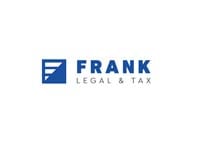News and developments
Taxation For Foreign Investors
This contribution aims to provide a high-level overview of the taxes that could apply to foreign investors in Thailand.
The Thailand Revenue Code is the main body of law that codifies procedures regarding tax assessment and the collection of the various taxes in Thailand. Taxes are mostly collected under a self-assessment system, whereby taxpayers are responsible for correctly filing their tax returns and for paying taxes.
Thailand has entered into numerous Double Taxation Agreements (“DTAs”) with other countries.
The most important taxes that apply to foreign investors in Thailand are corporate income tax and personal income tax. However, there are other taxes and contributions to keep in mind, such as value-added tax, specific business tax, stamp duty, certain municipal taxes and social security payments.
1. Taxation of Individuals
Regardless of whether an individual is a Thai resident or not, if income is derived from employment or business conducted in Thailand, such a person is subject to Thai personal income tax. Furthermore, if an individual stays in Thailand for at least 180 days in any calendar year, he/she is considered a Thai tax resident. As a tax resident, if foreign-sourced income is brought into Thailand in the same year that it is earned, such income will be subject to Thai tax. There are certain deductions of allowances and expenses available, including standard allowances such as personal allowance, allowances for life insurance premiums, provident or pension funds, interest payments, and donations. Depending on the government’s policy each year, there may be other possibilities for tax allowances besides the standard allowances.
2. Taxation of Corporations
Companies and partnerships incorporated in Thailand, or foreign companies with a permanent establishment in Thailand, and a foreign company that derives income from Thailand are subject to Thai corporate income tax.
If the company is incorporated under Thai law, its worldwide income is taxable in Thailand. Whereas, a company that is established under foreign law but conducts business in Thailand will be taxed only on the income generated in Thailand. The general corporate income tax rate is currently set at a flat rate of 20 percent of the net profits, but certain reductions are in place for SMEs. Before calculating the net profit, expenses incurred to acquire profits or from conducting business in Thailand are deductible expenses.
Value-added tax, a consumption tax on goods and services, applies to all retailers, manufacturers, wholesalers, service providers, and producers. The VAT rate is currently 7 percent. VAT is inclusive of municipal tax. It must be noted that small businesses with annual gross sales of less than 1.8 million are exempted from VAT.
Furthermore, employers and employees must contribute 5 percent of the employee’s monthly compensation for social security until the legal monthly threshold of 750 THB is met. This obligation applies to companies incorporated in Thailand at the company registry of the Ministry of Commerce.
Feel free to contact us if you have any questions.
